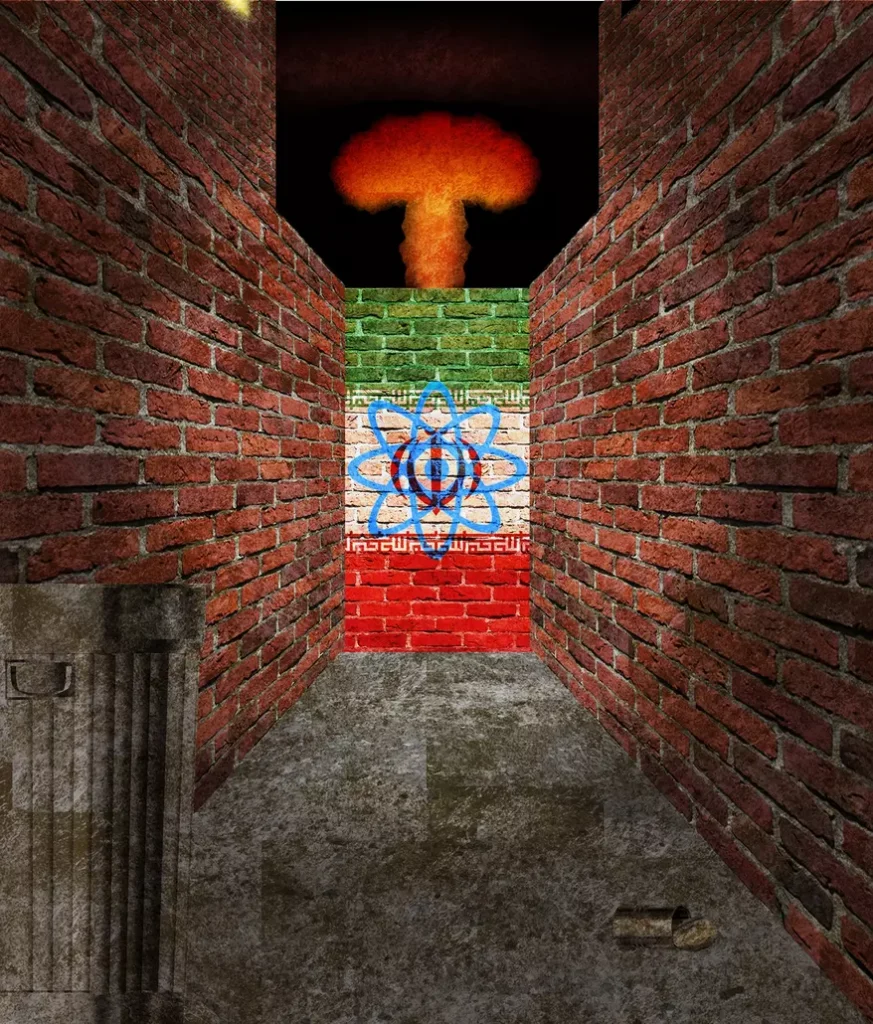TEHRAN MIGHT HAVE AS MANY AS A DOZEN OPERATIVE BOMBS BY MAY
Iran may already have five nuclear bombs and may have as many as a dozen by May. Some intelligence estimates, as early as this past October, asserted that Iran could have enough enriched weapons-grade uranium for one bomb within a week and enough for five nuclear bombs within six weeks. It has been more than three months since those estimates were made.
If Iran does have a bomb, why is there little mention of it in the press? The Iranians will probably not want to claim to have the bomb until they have a dozen or so operational ones at diverse locations. It would be foolish to announce one bomb, because the U.S. and Israel would expend considerable effort to find and destroy it — but more bombs in more locations makes this “destroy” effort increasingly complex, if not almost impossible.
The Biden administration has a strong incentive to hide or not reveal the existence of an Iranian bomb because of President Biden’s repeated pledges over the years not to allow the Iranians to have a nuclear bomb on his watch. Barack Obama and Donald Trump made similar pledges when they served as president. If the Biden administration were to acknowledge the existence of the Iranian bomb, the president would be pressured to take action. But what action?
The Israelis have also pledged not to allow Iran to have the bomb — for the simple reason that if Iran has many nuclear bombs, it could mean the end of Israel. It had been assumed that Israeli intelligence was good enough to warn about an Iranian bomb before it was completed — and could be destroyed. Israel and the U.S. had been able to delay the Iranian bomb program in the past by destroying production and research facilities, sabotaging both hardware and software, and assassinating key scientists.
The Iranians have certainly learned from these previous losses and taken measures to make sure their earlier vulnerabilities have been mitigated. Now, there are questions of how good the Mossad (Israeli intelligence) really is given its failure to predict the Hamas strike of Oct. 7. The Israelis are also very much occupied by their current war and are left with fewer resources to take out the Iranian nuclear program. The Israelis have little incentive to announce an Iranian bomb before they have figured out how to stop it.
The press most often refers to the amount of weapons-grade uranium as a proxy for the number of bombs. Nuclear bombs are produced in a number of sizes. A country can build a larger number of less powerful bombs or fewer more powerful bombs, depending on the targets and objectives. A bomb of the power that leveled Hiroshima, Japan, might be built, using only 16 kilos (35 pounds) of highly enriched uranium. More for a bigger bomb, less for a smaller one.
To build a bomb takes far more than just enriched uranium — which must be fashioned into metal in critical shapes. It also requires a powerful conventional explosive to create the critical mass of uranium, and electronic triggering devices to make it all take place in a fraction of a second. The engineering of a bomb requires a high level of skill — but U.S. engineers were able to do it in 1945, and the necessary knowledge has leaked from the seven known nuclear states in the past 80 years. The Iranians have first-rate physicists and engineers, so there is no doubt they can accomplish the task given enough time and resources.
A country must not only be able to build bombs but to tailor them for delivery. A crude bomb could perhaps be smuggled into a city center in a small truck. A bomb could be hidden on a ship or submarine. A bomb that can be put into a missile, delivered, and exploded at a precise spot takes considerably more engineering skills — but not ones that are beyond Iranian skill sets.
Given what we think we know, it is possible that the Iranians will have as many as a dozen operative bombs by May. At that point, they may feel comfortable announcing it to the world and, perhaps, set one off underground to prove the point. They would almost certainly want to announce their bomb while Mr. Biden is still president, knowing of his dithering and reluctance to take action, rather than gamble on a return of Mr. Trump to the White House.
How many bombs does a country need before it feels protected from an unprovoked attack? Iran and all of the other nuclear powers are making more (or refurbishing — in the case of the U.S. and Russia) bombs each month as an insurance policy.
If, two years from now, both Israel (which has had a nuclear stockpile for decades) and Iran have the capability with enough bombs to destroy each other, it is possible to envision a situation much like the U.S. and Russia had during the Cold War — a stalemate based on mutually assured destruction. And perhaps that could eventually lead to peace.
• Richard W. Rahn is chairman of the Institute for Global Economic Growth and MCon LLC.
https://www.washingtontimes.com/news/2024/feb/19/does-iran-already-have-nuclear-weapons/
© Copyright 2024 The Washington Times, LLC.
